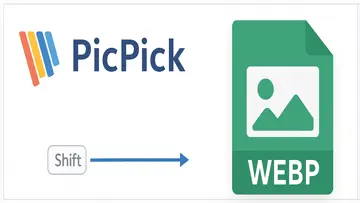Editor’s Review of Haskell FFI Bindings to syslog(3) by Peter Simons
The Haskell FFI (Foreign Function Interface) bindings to syslog(3) created by Peter Simons provide a powerful tool for developers looking to interface Haskell applications with system logging capabilities. This library leverages Haskell’s strengths while allowing access to the system-level logging mechanisms available on UNIX-like operating systems. Below, we will delve into the features, installation, usage, and benefits of this library, helping you understand its significance in Haskell programming.
Key Features
- Direct Access to System Logs: The bindings provide a straightforward way to send log messages directly to the system logger, utilizing established logging facilities.
- Flexible Logging Levels: Users can specify various logging levels such as debug, info, notice, warning, error, critical, alert, and emergency, allowing for fine-tuned control over message importance.
- Support for Various Identifiers: The library allows the use of different program identifiers (ident) when logging, making it clear which program the logs are originating from.
- Asynchronous vs. Synchronous Logging: Implements options for both synchronous and asynchronous logging, catering to different application needs and performance requirements.
- Haskell Type Safety: Maintains Haskell's type safety principles while interacting with system-level APIs, reducing the likelihood of runtime errors related to incorrect parameter types.
Installation
The installation of Haskell FFI bindings to syslog(3) is straightforward for users familiar with Haskell's package management ecosystem. Here’s how you can get started:
- Prerequisites: Ensure that you have GHC (Glasgow Haskell Compiler) installed along with Cabal (the build system for Haskell).
- Using Cabal:
You can add the library as a dependency in your project’s .cabal file or install it directly using Cabal with the following command:
cabal install syslog-ffi
Basic Usage
After installation, using the library is simple and intuitive. Here’s a brief code snippet that demonstrates basic usage:
import System.Log.Syslog
main :: IO ()
main = do
openlog "MyHaskellApp" [LogPID] LOG_USER
syslog LOG_INFO "This is an information message."
syslog LOG_ERR "This is an error message."
closelog
This example showcases how easily developers can open a connection to the syslog service, send messages at different severity levels, and close the connection afterward. The functions provided by this library are well-documented and conducive to efficient programming.
Error Handling
Error handling is crucial in any software component. The Haskell FFI bindings to syslog(3) liberate users from tedious error-checking by offering exception handling through standard Haskell practices. Common logging-related errors, such as failure to open a connection or invalid parameters passed to logging functions, are well-managed within this framework.
Performance Considerations
The performance of any logging utility can significantly impact application efficiency. This library is designed with performance in mind. It utilizes appropriate buffering and asynchronous techniques where needed, aiming not to block your application during high-volume logging situations.
Documentation and Support
An essential aspect of any software library is the quality of documentation. Peter Simons has provided thorough documentation for the bindings, which covers installation, configuration options, function usage examples, and more. This comprehensive guide ensures that developers of all skill levels can efficiently integrate logging functionality into their applications.
Use Cases
- Web Applications: Incorporating frequent log entries for tracking user actions and system events.
- Server-Side Programs: Maintaining operational logs for monitoring server health and activity.
- Background Processes: Keeping track of job completion states or failures in daemons and long-running tasks.
Sustainability and Community Contributions
The Haskell community actively contributes to libraries like this one. Regular updates ensure compatibility with new versions of GHC and evolving best practices in Haskell programming. Users can also participate by reporting issues or contributing enhancements through pull requests on platforms like GitHub.
The Haskell FFI bindings to syslog(3) by Peter Simons emerge as a valuable resource for developers needing robust logging functionality in their applications. By leveraging system-level capabilities with the elegance of Haskell’s type system and functional programming principles, this library strikes an excellent balance between ease-of-use and power. Whether building desktop applications or large-scale server environments, utilizing these bindings ensures log messages are handled efficiently in accordance with modern development practices.
Resumen
Haskell FFI bindings to syslog(3) es un software de Código Abierto en la categoría de Desarrollo desarrollado por Peter Simons.
La última versión de Haskell FFI bindings to syslog(3) es actualmente desconocida. Inicialmente fue agregado a nuestra base de datos en 06/06/2010.
Haskell FFI bindings to syslog(3) se ejecuta en los siguientes sistemas operativos: Windows.
Haskell FFI bindings to syslog(3) no ha sido calificada por nuestros usuarios aún.
Últimas reseñas
|
|
Logitech Gaming Software
¡Personaliza tu experiencia de juego con Logitech Gaming Software! |
|
|
FileOrganizer
¡Ordene sus archivos sin esfuerzo con FileOrganizer de Abelssoft! |
|
|
World of Tanks
¡Sumérgete en épicas batallas de tanques con World of Tanks! |
|
|
Kodi
Libera todo el potencial de tus medios con Kodi |
|
|
GOM Media Player
GOM Media Player: Un reproductor multimedia versátil para todas sus necesidades |
|
|
Canon G2000 series MP Drivers
Controladores de impresora eficientes para la serie Canon G2000 |
|
|
UpdateStar Premium Edition
¡Mantener su software actualizado nunca ha sido tan fácil con UpdateStar Premium Edition! |
|
|
Microsoft Edge
Un nuevo estándar en la navegación web |
|
|
Microsoft Visual C++ 2015 Redistributable Package
¡Aumente el rendimiento de su sistema con el paquete redistribuible de Microsoft Visual C++ 2015! |
|
|
Google Chrome
Navegador web rápido y versátil |
|
|
Microsoft Visual C++ 2010 Redistributable
Componente esencial para ejecutar aplicaciones de Visual C++ |
|
|
Microsoft Update Health Tools
Herramientas de estado de Microsoft Update: ¡asegúrese de que su sistema esté siempre actualizado! |





